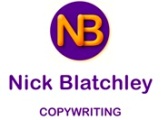I mention on my home page that I can write in the various global forms of English, but in practice all of my clients so far have required the familiar UK version of the language. Until last week, when I was asked to edit and rewrite a report written in US English, giving me the chance to test my claim.
In fact, it wasn’t quite as simple as that. As often happens, the report had clearly been put together by different people, and a few sections were in UK English. That meant that one page would be talking about centers and colors and the next about centres and colours, and one of many aspects of the job was to identify and change the “wrong” forms – those that were most familiar to me.
I’m pretty sure I got everything right. US English (or Canadian, Australian or any other form) isn’t just a matter of spelling, but that’s the most obvious transatlantic difference. Some spelling differences are well-known – where we have colours, theatres and travellers, for instance, Americans have colors, theaters and travelers.
Other differences are more obscure and unpredictable. American cars (or automobiles) have tires instead of tyres, American buildings have stories instead of storeys, and American farmers plow their land instead of ploughing it – possibly keeping an eye on the gray sky, not the grey one. Also, Americans tend to miss out diphthong vowels, so they have pediatricans rather than paediatricians.
Some words are both spelt and pronounced differently, such as specialty instead of speciality, or aluminum instead of aluminium. Others again are a matter of preference, rather than an absolute difference. In the first sentence of this paragraph, for instance, an American would almost certainly have written spelled rather than spelt, whereas in Britain either is correct. This is also true of words like burned/burnt, kneeled/knelt, dreamed/dreamt etc. And Americans always add -ize to words, where in Britain it can be either -ise or -ize.
There are differences in usage and vocabulary, too, with some words having different meanings (such as alternate, which means alternative in the US) and others where a different word is used for preference. Some of these are well known, with the American word often used here (elevator, apartment etc.), but the list is very long, and remembering them all isn’t always easy when you’re trying to write in American. And there are words that for some reason aren’t used in the US – they don’t have fortnights over there, for instance.
Then there are differences in phrasing, which is really only possible to learn by reading or hearing a lot of examples of American usage, as I have over the years. As an American would say, I’ll give a couple examples (though I’d prefer to give a couple of examples), but remembering them all might keep me awake nights (or they might keep me awake at night).
And that’s just US English. Australia and New Zealand have traditionally followed UK spelling, though that seems to be changing a little (one of the two main Australian political parties, for instance, is the Labor Party). Canadian English is confusing enough to frequently confuse the Microsoft spellchecker. In general, they tend to follow UK spelling for types of word, but US for individual differences, so they have colours and theatres, but tires and stories.
Of course, all of these, plus many other forms of English from the Caribbean to the Subcontinent, all have their individual vocabulary and ways of phrasing ideas. Can I keep up with all of them? I won’t know till I’ve tried, but I think I’m familiar enough with a wide range of global English to make a reasonable job of it.
